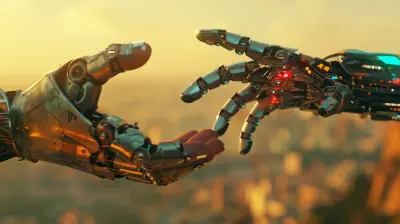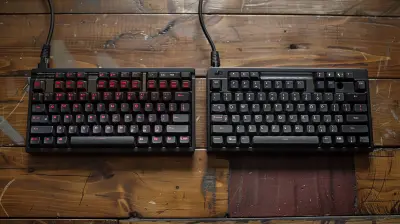Waste Not: How Smart Tech Is Transforming Recycling and Waste Management
8 May 2025
Waste. It’s everywhere. From the overflowing bins outside our homes to the heaps of discarded items in landfills, it's a problem we're all too familiar with. But what if I told you that technology is stepping in to tackle this issue head-on? Yep, smart tech is revolutionizing how we approach recycling and waste management, and the changes are pretty mind-blowing. So, let’s dive into how smart tech is transforming the way we deal with waste—and why it matters more than ever.
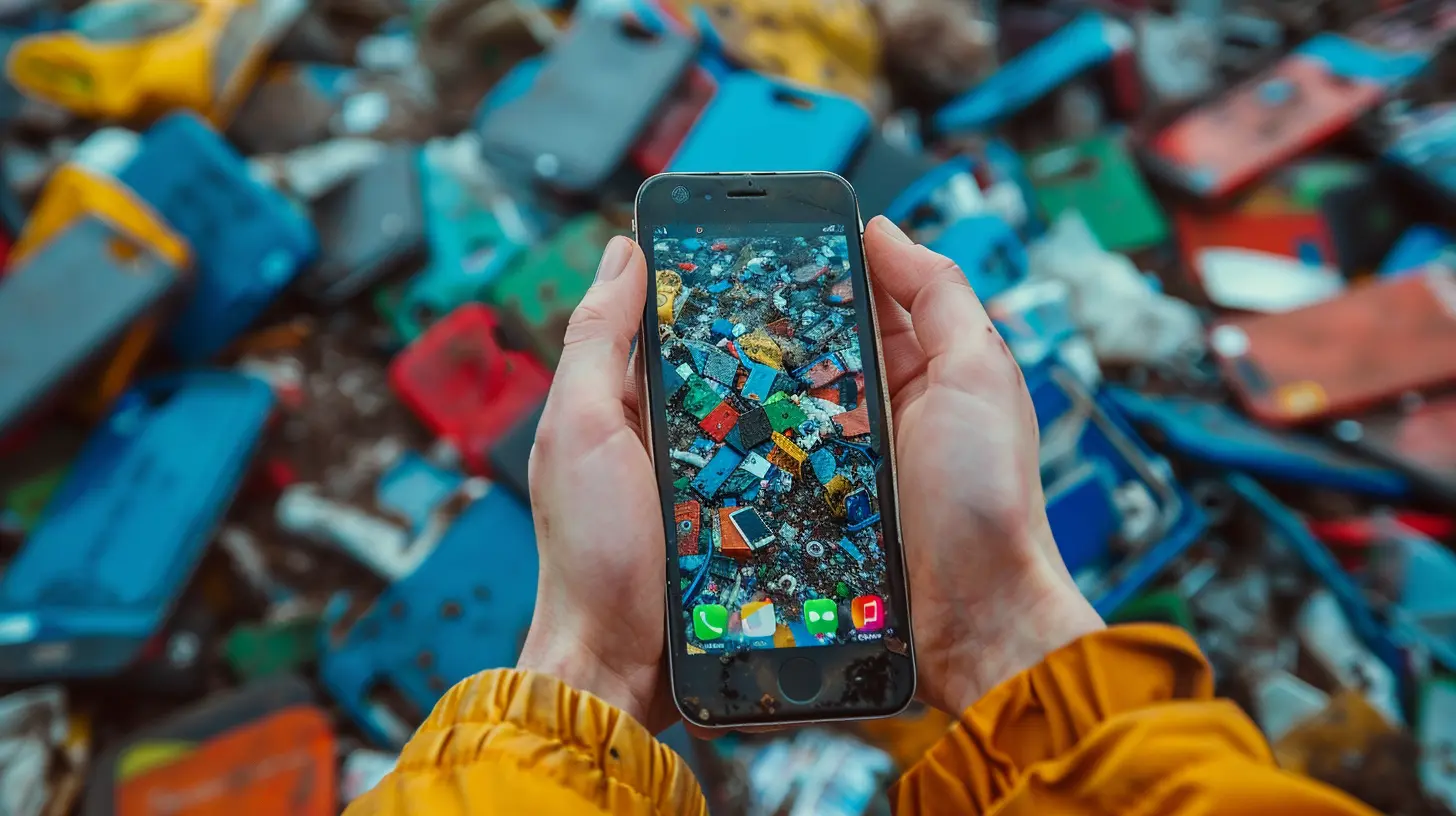
The Growing Need for Smarter Waste Solutions
As the global population continues to grow, so does the amount of waste we produce. According to experts, the world is expected to generate 3.4 billion tons of waste per year by 2050. That’s a huge number, and it’s not just a problem for the environment; it’s a logistical nightmare. Where do we put all this waste? How do we recycle more of it? And, most importantly, how do we reduce the amount we generate in the first place?Traditionally, waste management has been a bit of a guessing game. Collection schedules, recycling sorting, and landfill management have all relied on manual processes, which are often inefficient and inconsistent. But now, smart tech is stepping in to make things a whole lot easier—and smarter.
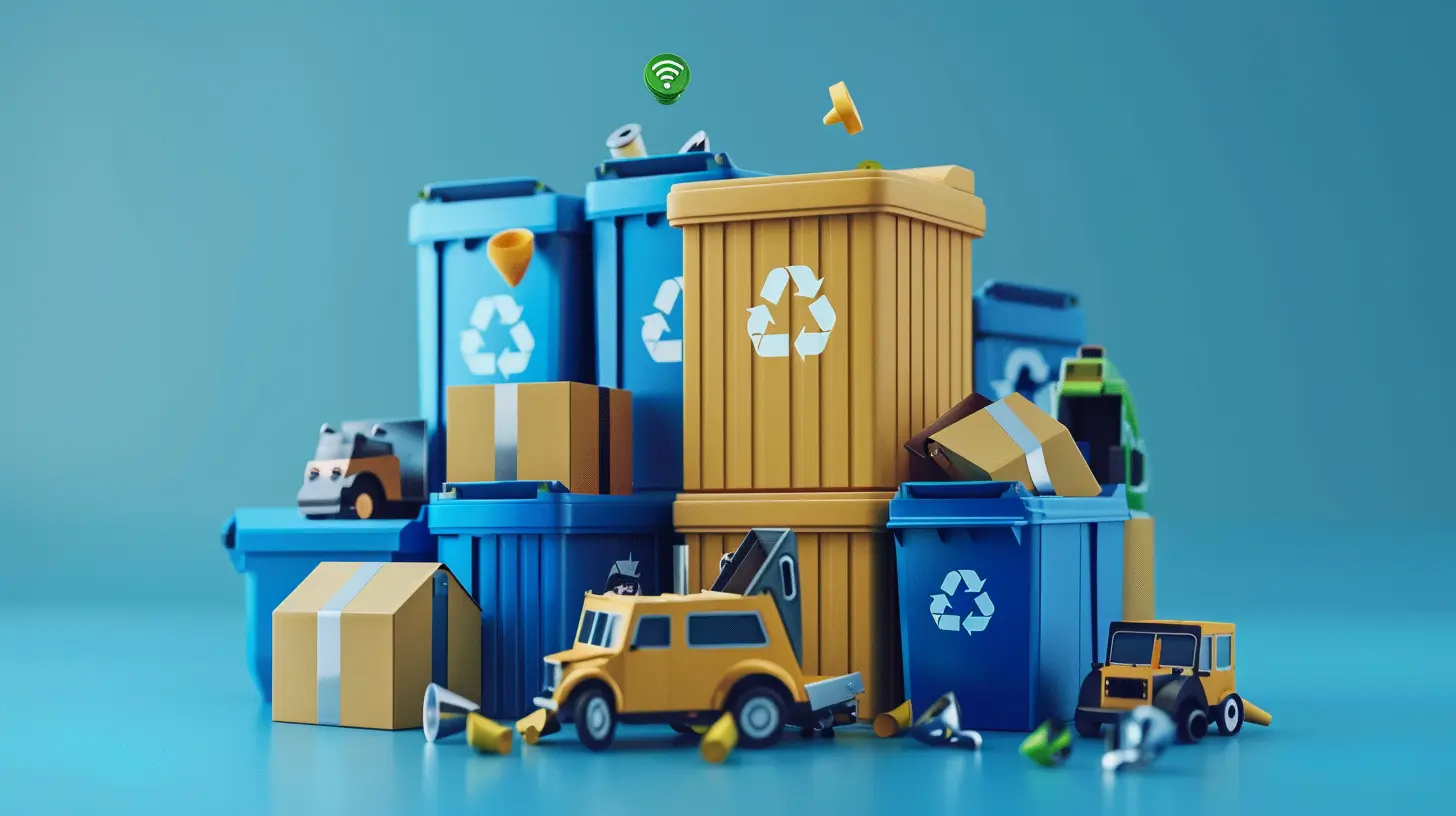
What Is Smart Tech in Waste Management?
Before we get too deep into the details, let’s break down what we mean by "smart tech." Simply put, smart technology refers to devices or systems that use sensors, data analytics, AI (artificial intelligence), and automation to perform tasks more efficiently and intelligently. In the context of waste management, it means using these tools to optimize everything from collection routes to sorting recyclables, reducing waste, and even predicting future waste trends.Sounds impressive, right? Let’s explore how exactly this works.
Smart Bins: Not Your Ordinary Trash Can
Ever thought your trash can could be smarter than your smartphone? It sounds absurd, but smart bins are already making waves in cities and communities. These bins are equipped with sensors that detect how full they are. When a bin reaches its capacity, it sends a signal to waste management services, letting them know it’s time for a pickup. This simple addition eliminates the need for trucks to roam the streets blindly, wasting fuel and time on empty or half-full bins.This tech doesn’t just save on resources; it also reduces CO2 emissions. Fewer trips mean less fuel burned, and that’s a win for the environment. Some bins even go a step further by compacting the trash inside, allowing them to hold more waste and require even fewer collections. It’s like having a trash can that does the thinking for you.
AI-Powered Sorting: Making Recycling Foolproof
Now, if you’ve ever stood over a recycling bin, hesitating between whether to toss in that greasy pizza box or plastic cup, you know how confusing recycling can be. We’ve all been there. The truth is, many people don’t recycle correctly, and that’s a huge problem. When non-recyclable materials end up in recycling bins, entire batches of recyclables can get contaminated and sent to landfills instead.Enter AI-powered sorting systems. These systems use artificial intelligence to identify and sort waste more accurately than humans ever could. Advanced cameras and sensors scan incoming waste, and AI algorithms determine whether an item is recyclable or not. Robotic arms or conveyor belts then separate the materials based on their type—paper, plastic, metal, you name it.
This smart sorting tech is already being used in recycling centers around the world, drastically reducing contamination rates and making recycling more efficient than ever. With AI at the helm, we’re taking the guesswork out of recycling and making it a more sustainable process.
The Internet of Things (IoT): Connecting Waste Management
It seems like everything is getting connected these days, from our homes to our cars to our watches. So why not waste management? The Internet of Things (IoT) is playing a huge role in transforming how waste is managed by connecting devices—like smart bins, sensors, and even waste trucks—into a unified network.Imagine a world where every waste bin in a city is connected to a central system that monitors its fill level in real-time. Waste management companies could then use this data to plan optimal collection routes, reducing unnecessary trips and ensuring that no bin is ever neglected. In fact, some companies are already using IoT to track waste trucks and optimize their routes to save time and resources.
The beauty of IoT is the level of control and visibility it offers. It’s like having a bird’s-eye view of the entire waste ecosystem, knowing exactly when and where waste needs to be collected. This level of insight makes waste management more efficient, cost-effective, and environmentally friendly.
Smart Apps for Consumers: Making Recycling Easier at Home
Let’s not leave out the role smart tech plays in our day-to-day lives. After all, we’re the ones generating most of the waste. Luckily, there are smart apps designed to help us minimize our ecological footprint. These apps can provide information on local recycling schedules, help you figure out what goes where, and even let you track how much waste your household is producing.Some apps go even further by offering incentives for recycling. For example, users might earn points for properly sorting their recyclables, which they can then redeem for rewards. It’s a bit like turning recycling into a game—one that benefits everyone.
We’ve seen innovations like smart fridges that help reduce food waste by tracking expiration dates and reminding users when something is about to go bad. These small but impactful innovations are nudging us toward better waste habits, one notification at a time.
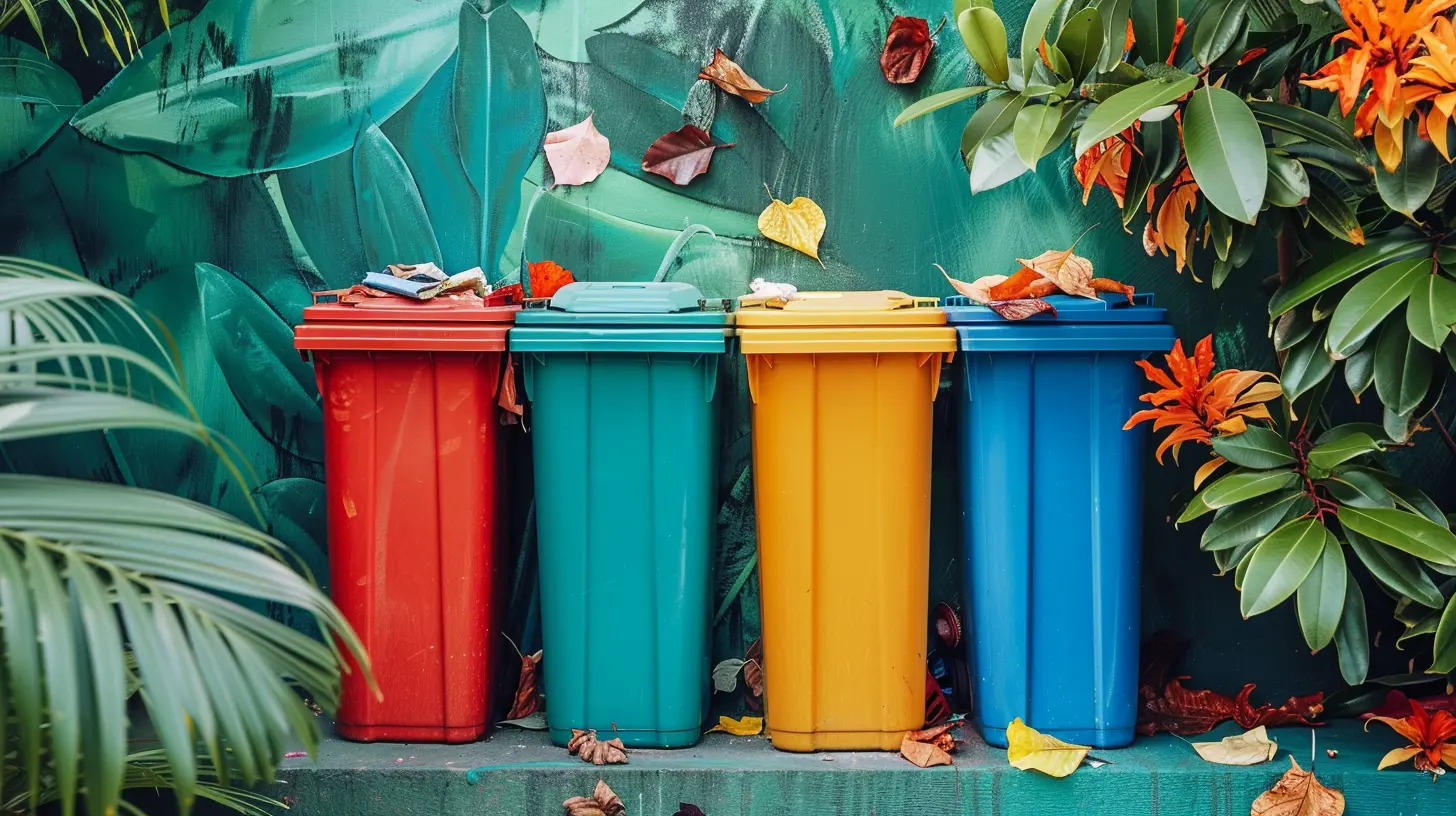
The Role of Data in Waste Management
If you haven’t noticed by now, data is the driving force behind all these smart technologies. Data analytics allows waste management companies to make informed decisions, forecast trends, and optimize their operations. But it’s not just about collecting data; it’s about using it effectively.For instance, data from smart bins can help cities identify areas that produce more waste and adjust collection schedules accordingly. Predictive analytics can even help cities anticipate waste surges—such as during holidays or festivals—and plan ahead.
Data also plays a crucial role in reducing waste at the source. By analyzing waste patterns, companies and governments can identify the biggest waste culprits and implement policies to tackle them. For example, if a city notices that a large portion of its waste comes from single-use plastics, it can introduce initiatives to reduce plastic use or promote alternatives.
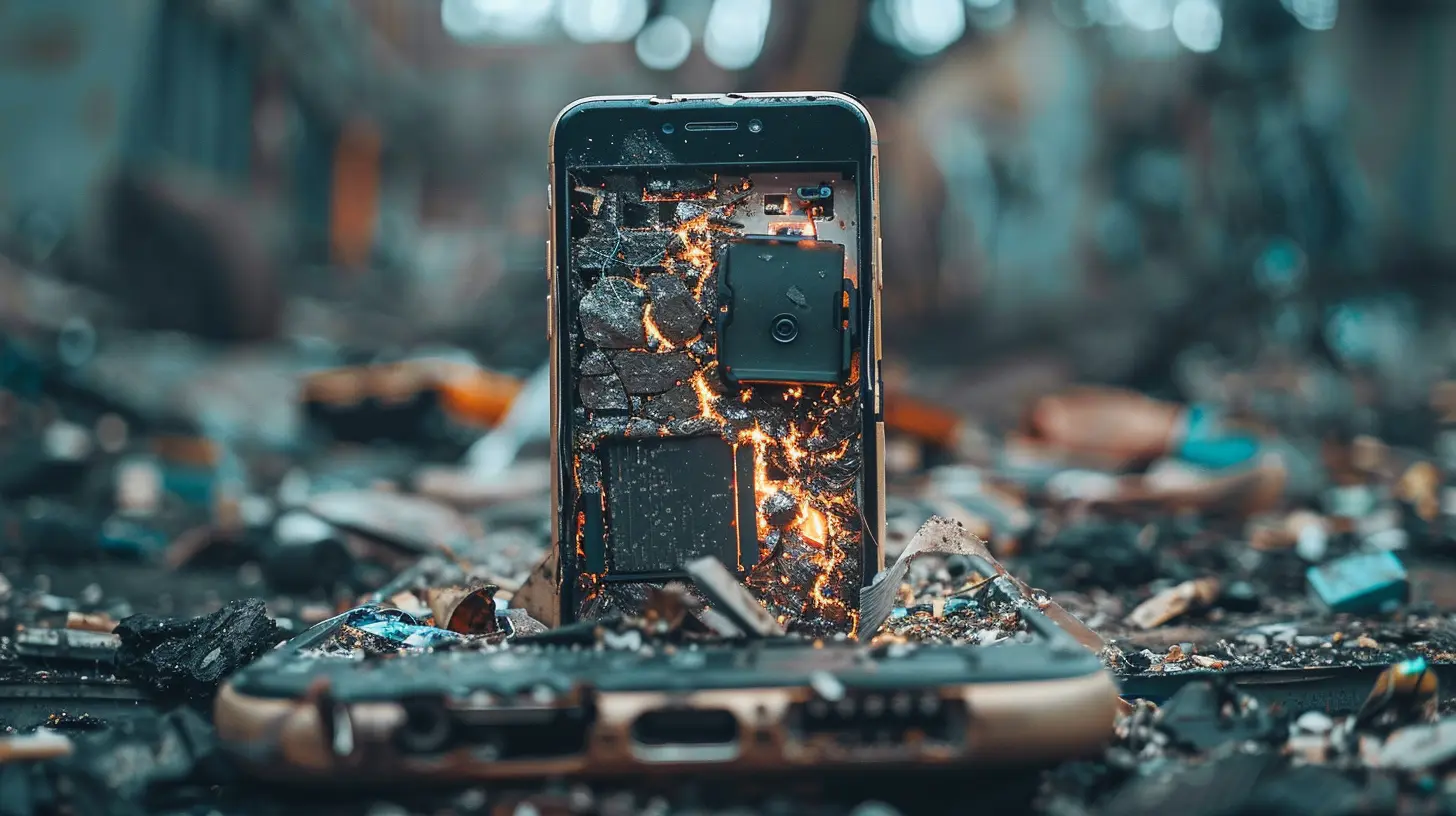
Reducing E-Waste: A Growing Challenge
While we’re on the topic of waste, we can’t ignore one of the fastest-growing waste streams in the world—e-waste. Electronic waste includes everything from old smartphones and laptops to outdated TVs and discarded chargers. And the problem is only getting worse. We live in a world where tech gets outdated faster than we can keep up, and as a result, we’re discarding electronics at an alarming rate.But smart tech is also coming to the rescue here. Some companies are using blockchain technology to track the lifecycle of electronic products, ensuring they are properly recycled or refurbished. Others are developing AI-powered systems to disassemble electronics more efficiently, recovering valuable materials like copper, gold, and rare earth metals.
We’re also seeing more circular economy initiatives, where electronics are designed to be easily repaired, reused, or recycled. Think of it like giving your old gadgets a second life rather than letting them rot in a landfill.
The Impact on Sustainability and the Future
If all of this sounds like a utopia, it’s because we’re still in the early stages of smart waste management. But the potential is enormous. By integrating smart tech across all levels of waste management, we can drastically reduce the amount of waste that ends up in landfills, lower carbon emissions, and create a more sustainable future.But like any technology, it’s not a silver bullet. It’s going to take widespread adoption and investment, not just from governments and corporations, but from each of us as individuals. After all, tech can only do so much—we still need to be mindful of our own waste habits. But with smart tech making it easier than ever to minimize waste and recycle correctly, we’re well on our way to a cleaner, greener future.
Conclusion: A Smarter Way to Waste Less
Waste not, want not, right? Well, in today’s world, we need to waste a whole lot less—and smart technology is helping us get there. From AI-powered sorting systems and IoT-connected bins to smart apps that make recycling easier at home, the innovations coming out of the waste management industry are nothing short of revolutionary.But at the end of the day, it’s all about how we use these tools. If we embrace smart tech and make waste reduction a priority, we can tackle this global problem one smart bin at a time. So, the next time you toss something in the trash, just think—your waste might be smarter than you think.
all images in this post were generated using AI tools
Category:
Environmental TechAuthor:

Ugo Coleman
Discussion
rate this article
6 comments
Kian McLain
While the integration of smart technology in recycling and waste management shows promise, we must critically assess its accessibility and long-term sustainability. Effective implementation relies on a balanced approach that includes community education and infrastructure investment, ensuring these innovations truly reduce waste across all demographics.
May 17, 2025 at 12:54 PM

Ugo Coleman
Thank you for your insightful comment! You're absolutely right—accessibility, community education, and infrastructure investment are crucial for ensuring that smart technology in recycling is effective and equitable for everyone.
Bridget Beck
Great article! It's inspiring to see how smart technology is revolutionizing recycling and waste management. Innovations in this space not only enhance efficiency but also promote sustainability. Looking forward to seeing how these advancements continue to shape our environmental practices and encourage more responsible consumption. Keep up the great work!
May 15, 2025 at 6:25 PM

Ugo Coleman
Thank you for your thoughtful comment! I'm glad you found the article inspiring. Exciting times lie ahead for recycling and waste management!
Arden Nelson
This article insightfully highlights how smart technology is revolutionizing recycling and waste management, offering innovative solutions to tackle pressing environmental challenges effectively.
May 12, 2025 at 11:06 AM

Ugo Coleman
Thank you for your kind words! I'm glad the article resonates with you and highlights the potential of smart technology in addressing environmental challenges.
Amelia Kirkland
Smart tech optimizes recycling; efficiency revolutionized.
May 12, 2025 at 4:15 AM

Ugo Coleman
Thank you! Indeed, smart technology is paving the way for a more efficient and sustainable recycling process.
Capri Miller
This article highlights the promising intersection of technology and waste management, showcasing innovative solutions that enhance recycling efficiency. While the potential for smart tech to reduce landfill waste is exciting, it's crucial to also address the environmental impact of tech production and disposal to ensure comprehensive sustainability.
May 9, 2025 at 10:51 AM

Ugo Coleman
Thank you for your insightful comment! You're absolutely right; while smart tech offers great potential for enhancing recycling, we must also consider the full lifecycle of these technologies to ensure true sustainability.
Esme Wallace
Great insights! It's inspiring to see how smart technology is reshaping recycling and waste management. Innovations like these are essential for a sustainable future. Keep up the great work!
May 8, 2025 at 6:48 PM

Ugo Coleman
Thank you! I'm glad you found the insights inspiring. Innovation is key to a sustainable future!



